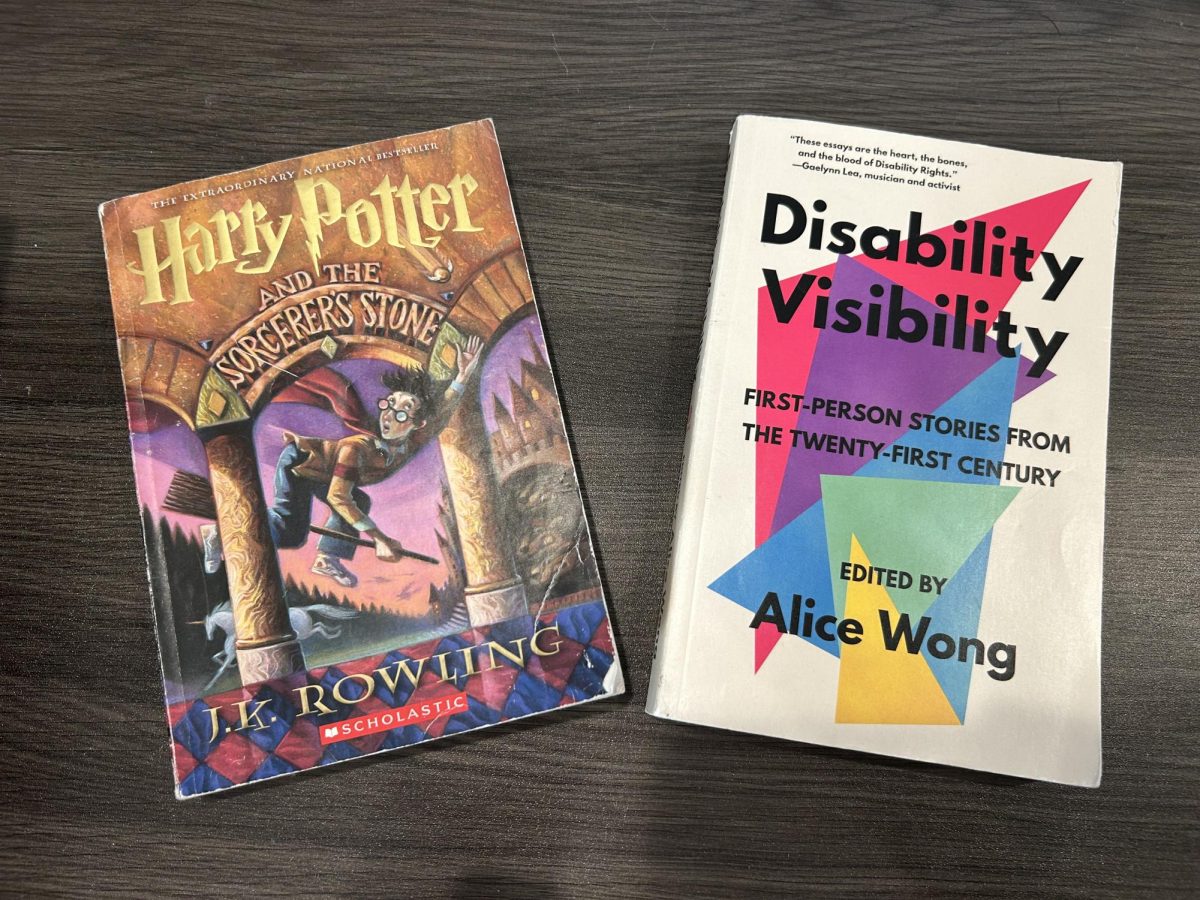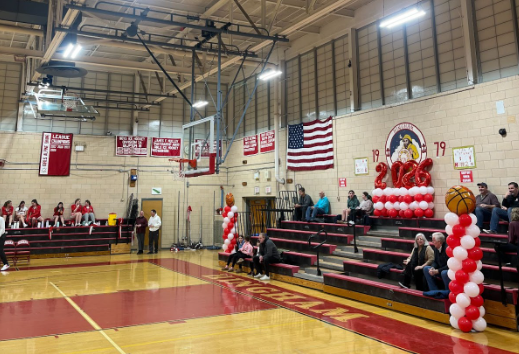2018 Midterms: An Interview With State Representative Candidate Kristen Arute (R)

Photo courtesy of @kristenarute on Twitter
Republican state representative candidate Kristen Arute.
October 28, 2018
Kristen Arute is the Republican running for state representative for the Third Plymouth District. In 2016, Arute ran against Joan Meschino for this position as a write-in candidate in the republican primary and lost. This year, the two candidates are having a rematch.
Arute, 51, is a resident of Hingham. She lives with her husband Michael, and the pair has two children. Arute received a Bachelor’s Degree in Education from Wheelock College. She has a license to teach middle school math, she has worked for an educational software company, and she has served as a remedial math instructor in several school systems on the South Shore as well as a private math tutor.
Arute has economic experience as a member and administrator of Truro Part-time Resident Taxpayers’ Association, a small business owner, and an owner and manager of rental properties. Additionally, she is the current president of Hingham CARES, a substance abuse prevention coalition, and a board member on the Hingham Council on Aging.
On the morning of Saturday, October 27th, I sat down to have a phone interview with Kristen Arute regarding her campaign and future plans.
LARKIN: You have run for Third Plymouth District state representative in the past. Why have you chosen to run again?
ARUTE: I was very pleased with the momentum I received in a very short amount of time in 2016. I jumped into the race rather late, and in 100 days I garnered 46% of the vote in the general election and I also won a primary. So, the groundswell of support behind me as a candidate was tremendous, and, again, the same reason I ran in 2016, I feel as though I have a lot to offer the Third Plymouth District with my broad and varied background and the number of concerns I can speak to from experience.
LARKIN: What is your opinion regarding “The Safe Communities Act”
ARUTE: Well, it didn’t pass for a reason. There was language in there that was concerning to law enforcement and to communities. And then, specifically in our district, I know that in the town of Hull in particular, it was a contentious issue that came up at town meeting last year and was voted down. So, I mean, certainly, law enforcement needs to be taken into consideration when it comes to establishing guidelines for how they are to collaborate with state and with federal officials. If law enforcement is concerned about it, then I would just look to them.
LARKIN: How do you feel about the Weymouth Compressor Station?
ARUTE: I am opposed to the compressor station. I think it is a very risky endeavor and I also think that it poses some real health and safety hazards so I’m definitely opposed to that.
LARKIN: What is your opinion regarding climate change?
ARUTE: In a nutshell? I think that it’s clear that there [are] certainly issues in regard to climate and weather that need to be addressed. However, in terms of what can be done at a local level from a state rep perspective, it’s really about, you know, mitigating storm damaging, and shoring up our infrastructure, and protecting residents’ homes and home values and ensuring that the proper resources are directed to areas that are susceptible. And we certainly discovered that last winter, areas that are susceptible to real devastation when we have severe weather patterns… it’s such a broad topic.
We can have a lengthy discussion and debate and, you know, the jury’s still out. I know the founder of AccuWeather just recently came out and said that it’s still unclear what the source of all of our, you know, concerns are and the issues that we’ve been seeing and he specifically said that he doesn’t believe that it’s a man-made issue. So, you know, in terms of addressing the science piece of it, I think we need to leave that to the experts. But, in addressing the issues that arise from it, that’s certainly something we can do. One of the top priorities of the legislature is to ensure the safety of the residents of Massachusetts.
LARKIN: Is there any legislation you plan to propose if elected regarding ensuring the residents of Massachusetts are protected after storms?
ARUTE: I’m not sure if it’s legislation, per say, but certainly grant money can be directed to communities. Scituate and Hull were hit particularly hard this past winter. We certainly need to be taking a look at our roads and making sure that our roads are in the condition that they need to be, taking a look at all aspects of our infrastructure. But I think, specifically, with regard to seawalls and exploring–sort of identifying and exploring–different options for seacoast protection, coastal protection, and then bringing all of the players to the table to the extent that that’s possible, whether it’s DCR, Army Corps of Engineers, local communities, or elected officials in local communities, and helping navigate through…
One of the complexities of shoring up our seawalls, in particular, is property ownership. There are some people who, on their title, they own down to the low water mark, which means that they own the portion of a seawall. So, in order to do any type of clean-up or infrastructure, you know, shoring up of these seawalls, it requires the owners of this property to come to the table and allow for that work to [take] place because they are owners of a portion of the seawall. So that’s been a very complex and a very challenging issue in Hull and in North Scituate, in particular.
I worked with a group in Hull just a few months ago. They asked me to come down and take a look at some damage that had been done to their beach and, as a result of debris that had been building up for years, their homes were being damaged. These rocks were flying up and hitting their homes, and sand and seaweed and all kinds of other debris [were] washing up onto their property and they were having to use their own personal funds to remove it. There [have] been real complexities with that, too. You can’t remove sand from your property and dump it back on the beach. It had to be removed and taken away.
So, they reached out to me because they had been working with the town of Hull and they had also reached out to our current state rep for support in getting this section of the beach cleaned up… I listened to their concerns… and it was a horrible situation. And then I put them in touch with the Massachusetts Coastal Coalition, and they were able to make some progress there. I attended a couple of Conservation Commission meetings with them…
With just a little bit of advocacy on their behalf, they were able to make some progress, and now they have something in the works with DEP–which is the Department of Environmental Protection–this sort-of temporary work order to get a portion of that beach cleaned up, and they’re very pleased with that.
So, you know… that’s a very specific issue that affects a very small number of people who live within the district. But it doesn’t take much time and effort to provide support for those people… I think that, with my work ethic and my ability to bring people together, issues that involve infrastructure and seawalls and storm damage and things like that, those are [of] very real concern to me… I’m eager to work on behalf of the residents of the Third Plymouth District.
LARKIN: Another issue that is very pertinent to Massachusetts is the opioid crisis. Both yourself and your opponent have identified that as a problem. But what specific legislation would you propose or specific ideas do you have to help decrease the high rate of opioid abuse and provide rehabilitation as well?
ARUTE: Right… I’m president of Hingham CARES, which is a substance abuse prevention coalition in Hingham. As a prevention coalition, we bring a lot of programming into schools, we work very closely with SADD at [Hingham High School] and D.A.R.E. at [Hingham Middle School], and we bring the programming into the community as well.
So, we worked with the PTO at the middle school last year to bring in a seminar on vaping that was very well-attended, very well received, [and] very informative. We also brought a film into the schools last year and to the community.. [the film is] a story of a young man who lost his life due to combination of xanax and alcohol at a party, and the family is taking their grief and their loss and they’ve turned it into something of value. They’ve created a film…. We brought that into the [HHS] last year and it was very powerful. I mean, it just made such an impact. As a result, we’ve worked closely with the SADD advisor Officer Ford and [Principal Swanson] to bring that film back to the freshmen class every year as part of a freshman seminar…
We’re very happy about that because it’s just a very important message to be sharing with the students. So, I think a lot of effort locally has been made in the area of prevention programs like that; however, funding is a real issue. So, for example, we spend $25,000,000 to $35,000,000 on high-stakes standardized testing. We can cut back on the amount of standardized testing that we do… which I believe we’ve gone too far… and use some of that funding directed towards prevention methods within communities.
I’m a firm believe in local control… I believe that, the closer you are to an issue or to a community, the more you know how to address those concerns. So, if we can direct funding back into communities, back into prevention coalitions to do the work that they know needs to be down within their communities, I think that’s the best way to go.
LARKIN: When you mention standardized testing, would that be in regards to MCAS and tests like that that students have to take?
ARUTE: Yes… I have a background in education and I have worked as a remedial math instructor in several school systems [on] the South Shore… In addition to this form of testing creating anxiety in students, it’s also something that takes away classroom teaching time…
I worked with seventh and eighth graders a couple of years ago in a school system locally and the eighth graders, in particular, the final two months of school they were taking two days worth of ELA MCAS, two days of math MCAS, two days of science MCAS, they were taking placement exams… it was just incredibly overwhelming…
The kids that I was working with were the kids that were having some difficulties in school… the program I was working in was kind of a safety net for these kids. So they were already struggling, and then to impose these tests on them, this extensive testing, it was awful to see… I think we’ve gone too far with standardized testing. I think we need to pull back.
LARKIN: Another [cause] you have identified yourself with is helping seniors and veterans. What do you think is the biggest problem posed for seniors and veterans in our area and how do you intend to assist if elected?
ARUTE: I think there are lots of issues that concern those two populations, certainly housing is one. One thing that I would like to see done pretty immediately, because the foundation has already been laid, is to establish what the legislature has referred to as FAST, and that stands for Financial Abuse Specialist Teams.
Four years ago, so in 2014, a committee studied the issue of elder financial fraud and determined that it was of real concern… A suggestion that was made was to create these FAST teams that would collaborate with local councils on aging and elder service agencies throughout Massachusetts. They would be comprised of volunteers and the Social Services industry, the Financial Services industry, law enforcement, and these people would essentially be made available when cases of financial fraud arose and social workers working on the case were, kind of, in over their heads. They certainly can’t expect to be experts in everything.
I did some follow up and discovered nothing has been done, so this was a great proposal put together four years ago, and nothing has been done. As a matter of fact, the Executive Office of Elder Affairs didn’t even know what I was talking about when I called and asked about follow-up on that.
So I spent four years seeking restitution for an elderly woman who was defrauded by her financial advisor. It was a very complex case. I’m sure Elder Services was tremendous, but it was beyond their purview, for one, and beyond their realm of expertise. And we ended up having to take private action through FINRA…
It really opened my eyes to, just how challenging this particular issue is and how, if a senior doesn’t have someone advocating for them, cases like this just fall by the wayside. Nothing gets followed up on. So, I would like to see our resources directed towards elder services programs and people doing work to protect seniors from all different types of abuse.
LARKIN: To tie back to Hingham High School, we already talked about how vaping and such has been an issue… Another issue that we have been involved with was, if you remember last winter, Hingham High school was one of multiple schools on the South Shore and across the country to participate in the March walkout held to protest gun violence and the recent school shooting. How do you feel about Massachusetts’ stance on gun laws? Is there any way you would want address student concerns if elected?
ARUTE: I mean, certainly that is of great concern to everyone. You guys go to school and we send you, as parents, off to school with the expectation that you will be safe and protected. I think, locally, I know that the Hingham Police Department does a tremendous job in terms of working with the schools and training teachers… they’re way ahead of the curve…
Again, certainly, providing any types of resources to local communities so that they can effectively train teachers. You know, any concerns at the building level, where money can be put towards further protection… all of those things I believe can be identified locally. When those things are identified locally, it’s a matter of providing the appropriate funding to make sure that those concerns are addressed. That’s where legislature can collaborate with local communities and make sure that our schools are safe.
In terms of gun laws… to the extent that I’ve looked into it and talked with law enforcement, I’ve been told that we have pretty innovative, highly effective gun laws. So, I’m not… an expert in that area, so it’s not something I feel very comfortable speaking to because I’m not sure what kind of tweaks can be made… it’s a matter of working with local communities and local law enforcement.
LARKIN: Finally, why do you believe that people should vote for you this November?
ARUTE: I have already referenced my background, so with my broad and varied background I can speak to lots of different topics from experience and I feel very comfortable with the idea that I have to address different issues that fall within those topics: education, elder affairs, small business, and substance abuse–the opioid crisis…
I also have a very strong work ethic. I’m someone who is accessible and someone who is hardworking. I am someone who absolutely is an advocate, or would be an advocate, for the people here on the South Shore. I like to hear from all different people from all different political backgrounds and persuasions; it doesn’t matter to me… I am all about reaching across the aisle, getting work down, rolling up your sleeves, and, you know, accomplishing things for the constituents that I would be serving. I would consider it an honor to serve the people i have lived among my entire life. I’ve been a resident of the South Shore my whole life, I’ve been in Hingham for twenty-seven years, and [I] grew up in Norwell. So, I know this area well and I love this area and it would be honor to serve this area.
All young people should remember to register to vote or to vote if of age on November 6th. Your voice does count.

































